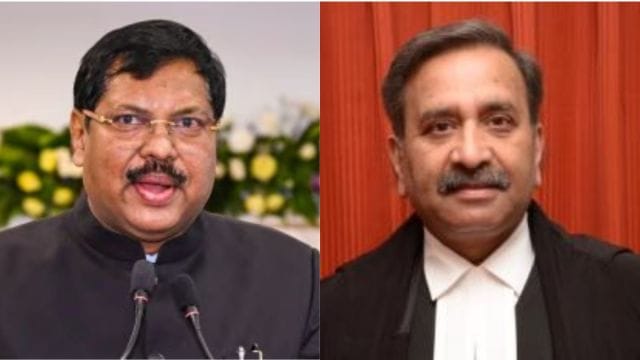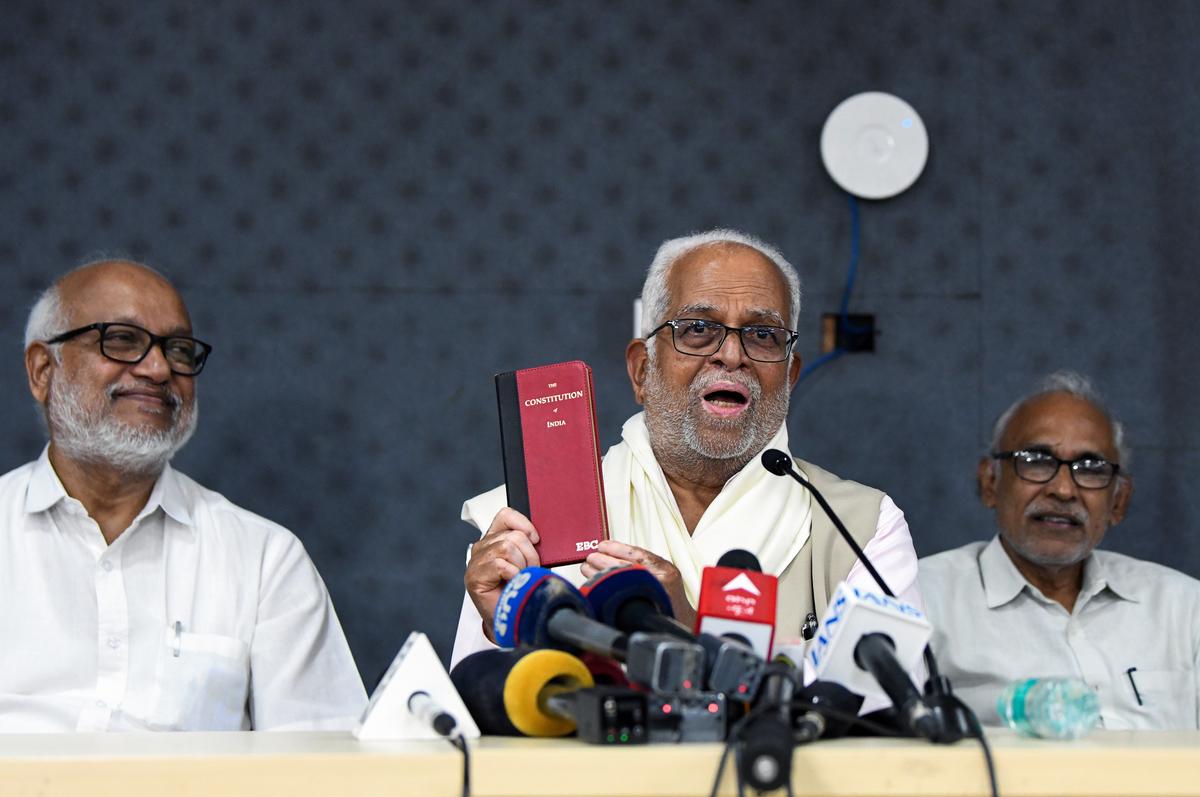ARTICLE AD BOX
 Sources said CJI BR Gavai took note of August 13 order wherein the judge Justice Sharad Kumar Sharma, had highlighted the issue. (Express File)
Sources said CJI BR Gavai took note of August 13 order wherein the judge Justice Sharad Kumar Sharma, had highlighted the issue. (Express File)
Chief Justice of India B R Gavai has asked the Supreme Court Secretary General to inquire into the revelation by a member of the Chennai bench of the National Company Law Appellate Tribunal (NCLAT) that a member of the higher judiciary had tried to influence him.
Sources said the CJI took note of August 13 order wherein the judge Justice Sharad Kumar Sharma, had highlighted the issue. Justice Sharma had recused from a case after recording that a member of the higher judiciary had tried to influence its outcome.
“We are anguished to observe that one of us, Member (Judicial), has been approached by one of the most revered members of the higher judiciary of this country for seeking an order in favour of a particular party. Hence, I recuse to hear the matter,” the judge noted, while referring to himself in his order.
The case, involving insolvency proceedings against Hyderabad-based real estate company KLSR Infratech Ltd, was reserved for orders on June 18, with parties allowed an additional week to file their written submissions. The company had filed an appeal against a decision by the Hyderabad bench of the National Company Law Tribunal (NCLT), which allowed a creditor, AS Met Corp Pvt Ltd, to initiate the Corporate Insolvency Resolution Process (CIRP) against it.
According to court records, AS Met Corp alleged that an outstanding amount of Rs 2,88,79,417, along with mutually agreed-upon interest, remained unpaid by KLSR Infratech. As per the Insolvency and Bankruptcy Code, an operational creditor (who supplies goods or services to a company) can initiate insolvency proceedings if there is a payment default provided there are no disputes over the existence of the debt.
Court records show that KLSR Infra contended it was “a profit-making company with a turnover of over Rs 300 crore for the past five years and therefore not insolvent.” It also claimed that a First Information Report (FIR) had been filed on June 30, 2022, against the creditor’s directors, alleging misconduct, and claimed that the directors were absconding. It was argued that the pendency of the criminal proceedings showed the existence of disputes between the parties, and hence, insolvency proceedings must not be initiated.
The creditor responded that the FIR was lodged only after the issuance of the demand notice and, therefore, could not constitute a pre-existing dispute. It also clarified that the directors had been granted anticipatory bail by the Telangana High Court and were not absconding, and that a petition for quashing of the FIR was also pending before the high court. The NCLT agreed with this submission and allowed for insolvency proceedings to be initiated. This decision was challenged before the appellate body.
Story continues below this ad
This is not the first time the judge has recused citing influence from third parties. In 2024, he recused in a case involving a cement company after noting in the order that his brother had approached him about the matter — the order also recorded a WhatsApp message the judge was allegedly sent.



.png)
.png)
.png)























 English (US) ·
English (US) ·